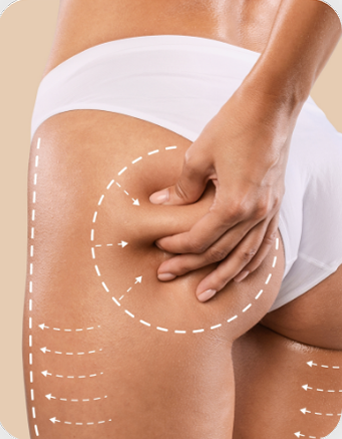Gastric Bypass
Preparing for Gastric Bypass Surgery: What You Need to Know
Gastric bypass surgery is a surgical procedure that can assist people who are obese in losing weight and living a healthier lifestyle. Gastric bypass surgery ensures that patients are satiated with less food, allowing some of the food to be absorbed.
Gastric bypass surgery shrinks the stomach and alters how the stomach and small intestine digest food, making weight loss easier. Roux en Y gastric bypass is another name for this procedure. The surgeon staples a large portion of the stomach to form a small pouch and then connects the small intestine to the pouch. Patients lose their eating habits before surgery in this manner, allowing them to adopt new healthy habits.
There are two types of gastric bypass surgery.
- Roux en Y Gastric Bypass
Roux en y gastric bypass surgery connects the small intestine to the small stomach pouch. Roux en Y refers to the new connection between this pouch and the small intestine. The remainder of your stomach and the small intestine’s upper part is bypassed. This surgery reduces the amount of fat and calories patients consume in their diet. It also reduces your intake of vitamins and minerals from food.
- Mini Gastric Bypass
The stomach is formed into a tube using special stapling tools in this procedure. This surgery shrinks the patient’s abdomen, limiting the amount of food they can eat. The main distinction between it and the Roux en Y type is that it is technically simpler and has only one connection.
Who Is Eligible for Gastric Bypass Surgery?
Gastric bypass surgery is an effective bariatric surgery method for losing weight quickly. This surgery, however, is not appropriate for every patient. It is best to consult our doctors and discuss your expectations to determine which bariatric surgery is best for you. The criteria are listed below if you are considering gastric bypass surgery but are unsure who will benefit from it.
– If your BMI is greater than 30 and you are unable to lose weight
– If you are experiencing symptoms such as insulin resistance and joint discomfort due to excess weight.
– If you suffer from type 2 diabetes
How Does Gastric Bypass Surgery Work?
First, candidates submitting an application to our clinic for gastric bypass surgery will undergo a series of thorough health examinations by our qualified doctors. Our medical team prepares patients for surgery following a physical examination. Gastric bypass surgery takes about 1 to 2 hours and is performed under general anesthesia.
The stomach is reduced and 95% of the stomach is bypassed during laparoscopic gastric bypass surgery. As a result, a section of the stomach that has been surgically divided bypasses the large intestine and is attached to the middle of the intestine. The remaining portion of the body continues to function without being excreted. As a result, the food consumed cannot pass through the large intestine.
Following the operation, you will be taken to the recovery room to recover; once recovered, Esvita Clinic‘s specialists will transport you to your room to rest following your health checks. You will be discharged after a 5-day hospital stay, and dieticians will plan your diet in our clinic until your next visit. Our doctors will review everything you need to know after you’ve been discharged.
What Are the Advantages of a Gastric Bypass?
Unfortunately, quickly losing weight and then regaining it does not help to reduce the potential health problems associated with obesity. If you and your doctor have decided to undergo gastric bypass surgery to reduce your risk of obesity-related health problems, it can help you reduce your risk of weight-related health problems such as diabetes.
- Cardiovascular disease
- Hypertension (high blood pressure)
- High cholesterol levels
- Reflux
- Sleep apnea
- Joint pains
Recovery After Gastric Bypass Surgery
The surgeon performs laparoscopic gastric bypass surgery through small incisions. This means a quicker recovery. Most people stay in the hospital for two or three days before returning to their normal lives in three to five weeks. If your job requires much effort, you can go a little slower or take some time off. It is critical to keep moving while recovering. However, don’t overdo it and avoid strenuous sports. You will usually be unable to eat for a day or two until your stomach and digestive system have recovered, and then our dietitian will provide you with a specific diet list to follow for a few weeks before discharge.







 EN
EN IT
IT FR
FR ES
ES DE
DE